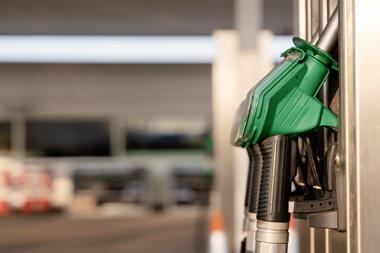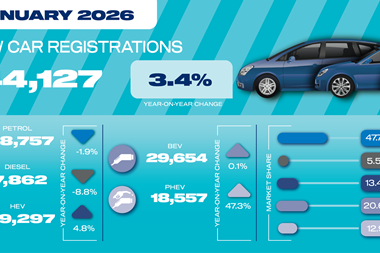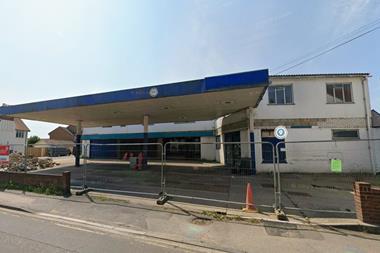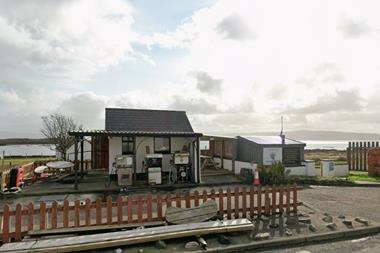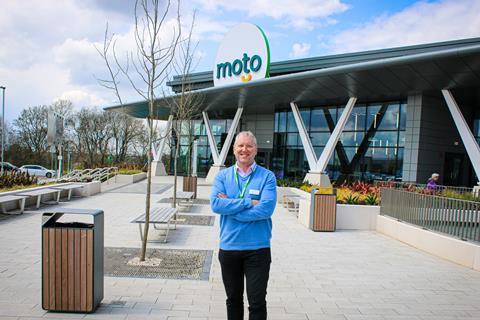
Leading service station operators are calling on the government to declare all 2,300 miles of the UK’s motorway network a “national priority” to be given access to sufficient power from the grid, to meet a predicted rise in demand this year for electric vehicle charging.
According to a report from car magazine Auto Trader last week, 2024 will be a year of car manufacturers discounting EVs as they try to avoid costly fines by hitting new government mandated targets, and face greater competition from Chinese suppliers.
Motorway service station operators are concerned that this will unleash demand for EVs, putting strain on an infrastructure they say is already running on insufficient grid capacity to power banks of ultra-rapid chargers needed to top up cars on long journeys. The cost of EVs has been one of the biggest factors in deterring car buyers into making the transition to electric until now. However, according to Auto Trader’s Road to 2035 Report, there is likely to be an electric vehicle price war, with manufacturers typically giving discounts last December of 10.6% on new EVs, compared with a 7.7% average for non-electric cars.
Moto Hospitality chief executive Ken McMeikan says that motorway service operators are left in a difficult position. “This price competition is great news for consumers as we know that the initial purchase price of an electric vehicle is the top barrier to entry for many drivers considering making the switch. This will be especially significant for younger road users, who have felt priced out of the electric car market, with cost being a key reason they often opt for petrol counterparts.”
But he adds: “I believe that the predicted price decrease will speed up the adoption curve and it has therefore never been more essential that the government declares all 2,300 miles of the UK’s motorway network as a ‘national priority’ for power, to allow motorway service operators, like Moto, to meet the increased demand for EV charging facilities. It is only through guaranteeing access to sufficient power that we can support the expected growth in demand for ultra-rapid chargers that we are already experiencing.”
Fellow operator Rob Exelby, managing director of Exelby Services, says that he wholeheartedly agrees. “We have been trying to procure additional capacity from the grid for the last three years on our A1(M), A19 and M6 sites, but the grid infrastructure and investment just isn’t there for us to be able to build EV charging hubs which the motorway and trunk roads so desperately need.”
Roadchef agrees that as the adoption of EVs speeds up, and demand for charging facilities surges, it is pivotal that the charging infrastructure capacity on motorways is rapidly increased. “Whilst the installation of chargepoints can now be completed in a matter of weeks, the remote setting of motorway service areas, complex planning issues around the laying of necessary cables and the grid capacity of local networks have slowed delivery across the UK,” says its director of EV implementation, Paul Comer.
“If, as expected, there is a spike in EV sales over the coming years, we strongly encourage the government to remove the blockages that are hindering quicker progress towards meeting its greener transport targets and gaining access to the power that is required to deploy ultra-rapid chargers along the entire UK motorway network,” he adds.
The Department for Transport has been criticised for failing to reach 2023 targets for six or more rapid or ultra-rapid electric vehicle chargers at every motorway service area in England by the end of 2023. A report showed that just 46 (39%) of 119 motorway services reviewed by the RAC on Zapmap had the target number of chargers above 50kW, to serve the growing fleet of EVs which it predicted would exceed the one million milestone by the end of 2023.
A government spokesman says progress is being made to prepare the motorway network for the expected uptake of electric vehicles: “Around 97% of motorway service areas already have charging available, and the number of chargepoints is rising across the country – increasing by 45% since January 2023.
“We expect the private sector to deliver the majority of chargepoints, but we’re also investing £70 million upgrading grid capacity along motorway service points where it is uncommercial to do so, with our Rapid Charging Fund pilot.
“We’re also driving forward the biggest reforms to our electricity grid since the 1950s – halving the time it takes to build networks, speeding up grid connections, and supporting the transition to electric vehicles.”




























